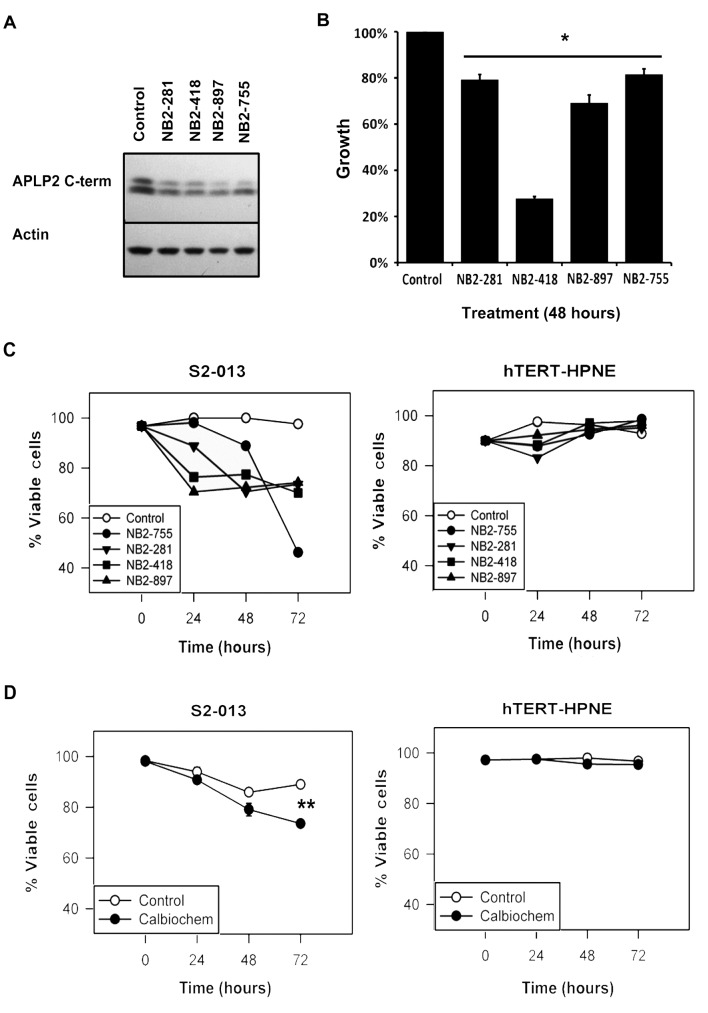Figure 3.
Chemical inhibition of β-secretase reduced APLP2 C-terminal fragment expression and pancreatic cancer cell viability. (A) Western blot analysis showed reduced expression of APLP2 C-terminal fragments in S2-013 cell lysates following 24-h incubation with 2 µM of each of four Novartis β-secretase inhibitors (NB2-755, −281, −418 and −897). Mock-treated cells and actin were respectively used as controls for β-secretase inhibitors and loading. (B) Novartis β-secretase inhibitors impaired the growth of S2-013 cells. Cell growth was determined by the MTT assay and values were compared to respective control cells, which were set as 100% (asterisk denotes p<0.005 by the Student’s t-test; n=6, error bars indicate standard error of the mean). (C) The viability of S2-013 cells in culture was reduced over time by β-secretase inhibition, as demonstrated by trypan blue staining following treatment with 2 µM NB2-755, −281, −418 or −897. In contrast, the viability of the hTERT-HPNE pancreatic ductal cells was not adversely affected by the same treatments with β-secretase inhibitors. Viability is expressed on the graph as the percentage of live cells, with the 0 h time point for control cells set at 100%. (D) S2-013 cells treated with 2 µM Calbiochem β-secretase inhibitor also exhibited impaired viability. For S2-013, the asterisk denotes p<0.001 at 72 h by the Student’s t-test. The viability of the control hTERT-HPNE cells was not reduced by incubation of the cells with the Calbiochem β-secretase inhibitor (p<0.05 by the Student’s t-test). The data shown are representative of the findings from two separate experiments, each with n=3 and the error bars represent the standard error of the mean.

